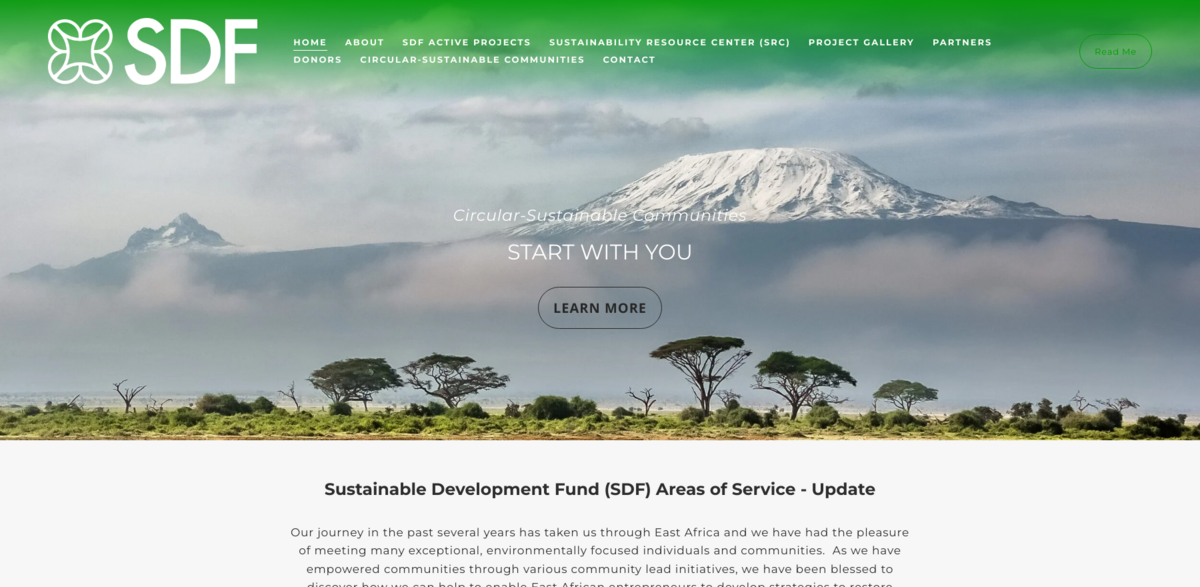Understanding the Project
The Sustainable Development Fund (SDF) has been on an incredible journey across East Africa, meeting exceptional, environmentally focused individuals and communities. Over the past several years, the program manager for circular-sustainable communities in developing countries has empowered local entrepreneurs to develop strategies to restore ecosystems, adopt regenerative farming practices, and utilize waste biomass for the production of biochar and green charcoal. These initiatives generate revenues to ensure long-term sustainability. The approach is simple yet powerful… It takes community-led initiatives and turns them into practical, sustainable solutions that integrate locally proven methods with modern sustainability techniques.
Main Benefit
Key benefits and figures of this initiative include:
- Active collaboration with East African Rotary Clubs, particularly those in District 9212.
- Empowerment of local entrepreneurs—enabling them to adopt regenerative farming and eco-friendly technologies.
- The generation of sustainable revenue streams supporting environmental projects.
- The development of an eco-school program that integrates environmental-sustainability technologies into rural school infrastructures.
- A replicable model adaptable to various funding constraints and local conditions.
Eco-School Initiative
The eco-school program is a standout element, transforming rural African schools into living demonstrations of sustainability. Instead of leaving students to figure out how to reduce their school’s environmental footprint on their own, the eco-school acts as a complete teaching laboratory. In a very natural and engaging way, this model shows how to eliminate waste and live in a true circular-economy fashion. It provides young learners with hands-on exposure to sustainable practices, sparking curiosity and hope for a greener future… The initiative is designed to be applied in phases based on budget and funding constraints, making it accessible and adaptable across many communities.
East African Community Partnership
A key part of the project’s success lies in its strong partnerships throughout East Africa. SDF has built lasting relationships with local communities and Rotary Clubs, especially in District 9212, where traditional values meet modern sustainability needs. These collaborations ensure that the designs and strategies are tailored to local conditions, conserving cultural context while introducing innovative eco-friendly practices. The project has seamlessly integrated environmentally friendly technologies into established community practices. These partnerships foster mutual respect and learning, with local expertise driving forward solutions that are both effective and appropriate.
Regenerative and Circular Economy Strategies
The initiative champions regenerative farming practices and the utilization of waste biomass to create biochar and green charcoal. This circular-economy approach not only restores ecosystems but also opens up new revenue channels in communities that need economic support alongside environmental improvement. By repurposing waste biomass, the approach reduces carbon emissions and supports carbon reduction strategies. At the heart of these efforts is a dynamic method that combines traditional knowledge with cutting-edge, sustainable technologies, helping communities build a strong foundation for a greener tomorrow… The focus on circularity ensures that every step taken is designed to create lasting, self-reinforcing benefits.
Project Impact on Sustainable Development Goals
- SDG 4: Quality Education – Enhanced by the eco-school program that serves as a practical environment for sustainable learning.
- SDG 7: Affordable and Clean Energy – Encouraged through the innovative use of waste biomass in eco-friendly energy production.
- SDG 12: Responsible Consumption and Production – Promoted via circular-economy strategies that reduce waste and increase efficiency.
- SDG 13: Climate Action – Addressed through intentional carbon reduction strategies and ecosystem restoration.
- SDG 15: Life on Land – Supported by initiatives aimed at restoring natural ecosystems and promoting biodiversity.
Future Prospects and Community Impact
Looking ahead, the project continues to inspire both communities and potential sponsors. Opportunities such as funding an eco-school in Uganda or Kenya or partnering to sponsor a Sustainability Resource Center offer clear pathways to making a tangible difference. There are communities waiting for the support and a world in need of proven carbon reduction strategies—each action taken today paves the way for a healthier planet tomorrow. This forward-looking model, grounded in circular-sustainable solutions, emphasizes that investing in sustainability means investing in a future where environmental care and community prosperity go hand in hand. With every new partnership and every funded project, a generation of environmental-sustainability stewards is born, ready to restore and protect God’s creation—truly, a hopeful and promising endeavor.






















